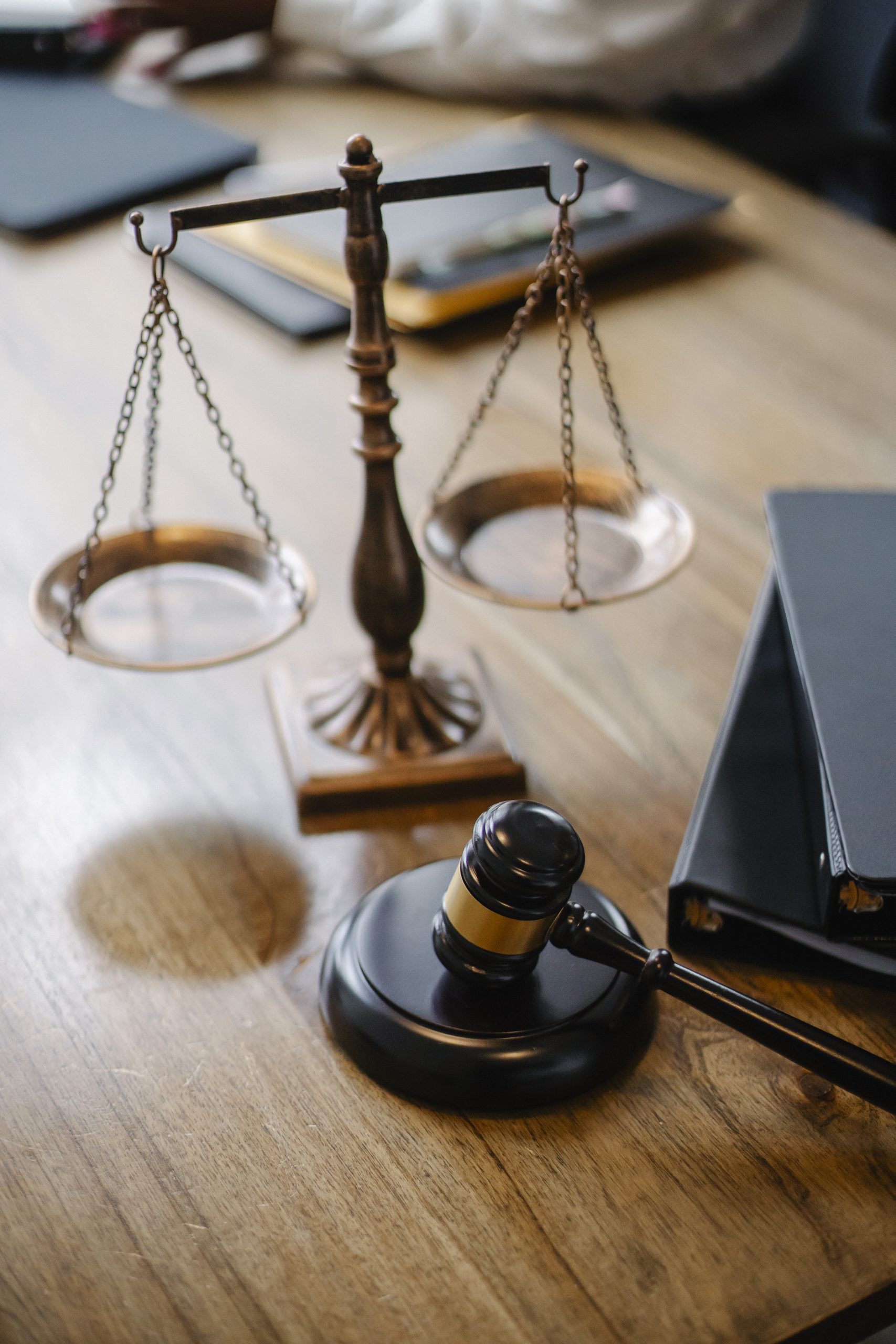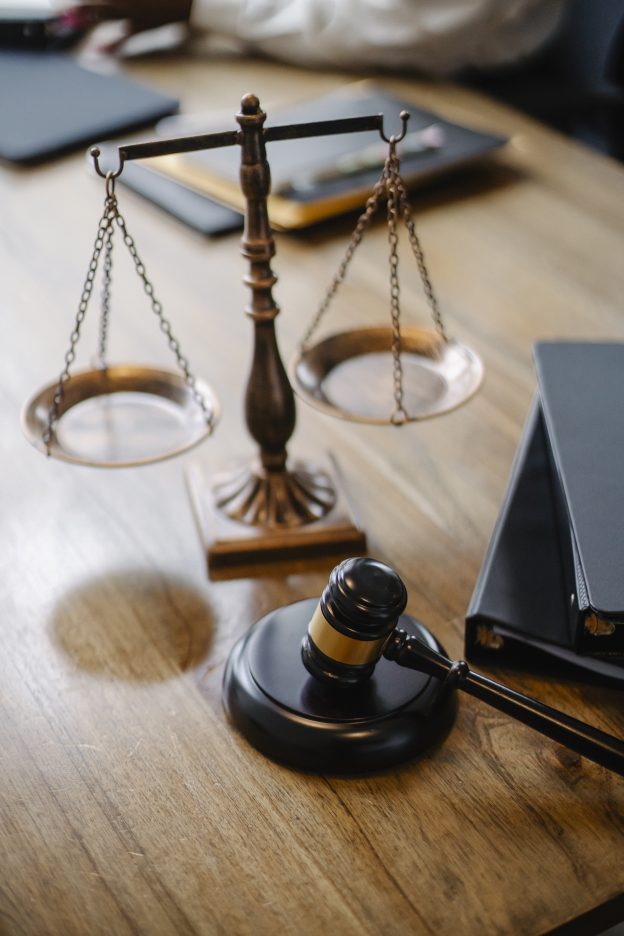In today’s complex legal landscape, facing criminal charges can be an overwhelming experience. It is crucial to have a knowledgeable and experienced attorney by your side who can guide you through the process and protect your rights. If you find yourself in such a situation in Millcreek, Utah, look no further than the Criminal Defense Millcreek Utah. With a specialization in representing businesses and business owners, this attorney understands the unique challenges faced by individuals in the corporate world. From white-collar crimes to regulatory infractions, their expertise covers a wide range of criminal defense matters. By crafting informative and accessible content, this criminal defense attorney aims to provide individuals with a comprehensive understanding of the law and the reassurance they need to take the next step. Take control of your situation and call the lawyer listed on this website for a consultation today.
Understanding Criminal Defense
Criminal defense is a legal practice that focuses on defending individuals who have been accused of committing a crime. The main goal of criminal defense is to ensure that the accused person’s rights are protected and that they receive a fair trial.
Why do you need criminal defense?
If you have been charged with a crime, it is essential to have a criminal defense attorney by your side. The criminal justice system can be complex and intimidating, and having an experienced attorney can greatly increase your chances of a favorable outcome.
A criminal defense attorney will guide you through every step of the legal process, from the initial investigation to the trial and beyond. They will assess the evidence against you, develop a strong defense strategy, and fight to protect your rights.

Importance of hiring a criminal defense attorney
Hiring a criminal defense attorney is crucial because they have the knowledge, experience, and resources to provide you with the best possible defense. They are skilled in navigating the legal system and can ensure that you receive fair treatment and representation.
An attorney will analyze the details of your case, identify any weaknesses in the prosecution’s case, and work to build a robust defense strategy. They will advocate for your innocence or negotiate with prosecutors to secure a plea agreement that minimizes the potential consequences.
Services Offered
Initial consultation
During the initial consultation, your criminal defense attorney will meet with you to discuss the details of your case. They will ask you questions to gather information and evaluate the strength of the prosecution’s case against you. This consultation is an opportunity for you to ask questions and learn more about the attorney’s approach and experience.
Case evaluation and analysis
Once the attorney has gathered all the necessary information, they will conduct a thorough evaluation and analysis of your case. They will review the evidence, assess the legal implications, and identify any potential legal defenses or strategies to pursue.
Legal representation in court
One of the principal roles of a criminal defense attorney is to represent you in court. They will appear on your behalf at all court proceedings, such as arraignments, pre-trial hearings, and the trial itself. Your attorney will present arguments, challenge the prosecution’s evidence, and advocate for your rights.
Negotiation with prosecutors
In many cases, it is possible to negotiate with the prosecution for a plea agreement that reduces the charges or penalties. Your criminal defense attorney will engage in negotiations with the prosecutors to secure the best possible outcome for you. They will fight for a fair and favorable resolution to your case.
Preparation for trial
If your case goes to trial, your attorney will meticulously prepare your defense strategy. This involves gathering evidence, interviewing witnesses, and developing legal arguments to present in court. Your attorney will ensure that you are fully prepared to face the prosecution and present a compelling case.
Appeals and post-conviction relief
If you have been convicted of a crime, your attorney can help you navigate the appeals process. They will assess the grounds for an appeal, gather additional evidence if necessary, and argue your case in appellate court. They can also assist with post-conviction relief, such as seeking a reduced sentence or exoneration.

Types of Criminal Charges
Assault and battery
Assault and battery charges involve intentionally causing harm or the apprehension of harm to another person. These charges can range from misdemeanors to serious felonies, depending on the severity of the offense.
Drug offenses
Drug offenses encompass a wide range of criminal charges related to the possession, sale, distribution, or manufacturing of illegal drugs. These offenses can carry severe penalties and have long-lasting consequences.
DUI/DWI
Driving under the influence (DUI) or driving while intoxicated (DWI) charges pertain to operating a motor vehicle while impaired by alcohol, drugs, or a combination of both. These charges can result in the suspension of your driver’s license, fines, and potential jail time.
Theft and property crimes
Theft and property crimes involve unlawfully taking or damaging another person’s property. Charges can include theft, burglary, robbery, arson, and vandalism, among others. The severity of these charges depends on the value of the property involved and the circumstances surrounding the offense.
White-collar crimes
White-collar crimes refer to financially motivated offenses committed by individuals in business or professional settings. Examples of white-collar crimes include fraud, embezzlement, money laundering, and identity theft. These offenses often involve complex financial transactions and can have significant legal and financial implications.
Sex crimes
Sex crimes encompass a range of offenses, including sexual assault, rape, child pornography, and indecent exposure. These charges are highly stigmatized and can result in severe penalties, including lengthy prison sentences, mandatory sex offender registration, and lifelong social and professional consequences.
Juvenile crimes
Juvenile crimes involve offenses committed by individuals under the age of 18. These offenses can include theft, drug possession, underage drinking, and vandalism. Juvenile offenders are typically subject to different legal proceedings and may be eligible for alternative sentencing options focused on rehabilitation rather than punishment.
Domestic violence
Domestic violence charges involve physical or emotional abuse against a family member or household member. These charges can include assault, battery, stalking, or violation of restraining orders. Domestic violence cases often require specialized legal representation due to the sensitive nature of the accusations.
Probation violations
Probation violations occur when an individual fails to comply with the terms and conditions of their probation. These violations can include failing drug tests, not reporting to a probation officer, or committing new criminal offenses. Violating probation can lead to the revocation of probation and the imposition of additional penalties.
Expungement
Expungement is a legal process that allows individuals to have their criminal records sealed or removed. Expungement can provide individuals with a fresh start by reducing the negative impacts of a criminal record on employment, housing, and other areas of life.
The Criminal Defense Process
Arrest
The first step in the criminal defense process is an arrest. If you are suspected of committing a crime, law enforcement officers have the authority to apprehend you and take you into custody.
Booking and bail
After an arrest, you will go through the booking process, which involves recording personal information, taking fingerprints and photographs, and conducting a background check. Depending on the nature of the offense, you may be eligible for bail, which allows you to be released from custody before your trial. A criminal defense attorney can help you navigate the bail process and advocate for your release.
Arraignment
At the arraignment, you will appear before a judge and be formally charged with the crime. You will have the opportunity to enter a plea of guilty, not guilty, or no contest. Your attorney will guide you through this process, advise you on the best course of action, and ensure that your rights are protected.
Pre-trial hearings
Pre-trial hearings are court proceedings that occur before the trial. These hearings can involve motions to suppress evidence, motions to dismiss charges, and other legal arguments. Your attorney will present these motions on your behalf and challenge any evidence or procedures that may be in violation of your rights.
Plea bargaining
Plea bargaining is a negotiation process between the prosecution and defense to reach a mutually beneficial agreement. Your attorney will advocate for a plea deal that minimizes the charges or penalties against you. They will analyze the evidence, assess the strength of the prosecution’s case, and advise you on the best course of action.
Trial
If a plea agreement cannot be reached, your case will proceed to trial. Your attorney will present evidence, cross-examine witnesses, and argue your case before a judge and jury. They will use their knowledge of the law and courtroom experience to build a strong defense and challenge the prosecution’s case.
Sentencing
If you are found guilty at trial or decide to plead guilty, the judge will impose a sentence. The sentencing can include fines, probation, community service, counseling programs, or incarceration. Your attorney can advocate for the most lenient sentence possible and explore alternatives to incarceration, such as rehabilitation programs.
Building a Strong Defense Strategy
Investigation and gathering evidence
A crucial aspect of building a strong defense strategy is conducting a thorough investigation and gathering evidence. Your attorney will examine the details of your case, question witnesses, review police reports, and collect any other evidence that may support your defense.
Witness interviews
Your defense attorney will interview witnesses to gather additional information and potentially uncover evidence that can strengthen your case. They will carefully craft questions to elicit relevant information and challenge any inconsistencies in witness testimony.
Expert witnesses
In some cases, your defense attorney may engage expert witnesses to provide professional opinions or expertise on specific aspects of your case. Expert witnesses can include forensic scientists, medical professionals, or professionals in fields relevant to your charges. Their testimony can be crucial in challenging the prosecution’s evidence.
Alibi defense
If you have an alibi, meaning you can prove that you were elsewhere during the time the alleged crime took place, your defense attorney will work to gather evidence and present a strong alibi defense. This may include providing witnesses or documentary evidence that corroborates your whereabouts.
Challenging the prosecution’s evidence
Your defense attorney will meticulously review the prosecution’s evidence to identify any weaknesses or inconsistencies. They will challenge the admissibility of evidence obtained unlawfully or through violation of your rights. By challenging the evidence, your attorney can undermine the strength of the prosecution’s case.
Legal arguments and motions
Throughout the criminal defense process, your attorney may file legal arguments and motions to challenge the constitutionality of certain procedures, request the exclusion of evidence, or seek the dismissal of charges. These legal maneuvers can ultimately strengthen your defense.
Cross-examination
During the trial, your attorney will engage in cross-examination of the prosecution’s witnesses. They will carefully question the witnesses to challenge their credibility, highlight any inconsistencies, and cast doubt on their testimony. Effective cross-examination can significantly impact the outcome of your case.
Presenting a compelling case
Your defense attorney will present a compelling case in court, presenting evidence, calling witnesses, and delivering persuasive arguments. They will ensure that the judge and jury understand your side of the story and the weaknesses in the prosecution’s case. By presenting a well-constructed defense, your attorney will fight for your acquittal or the best possible outcome.
Potential Consequences of Criminal Charges
Fines
If you are convicted of a crime, the court may impose fines as a part of your sentence. The amount of the fines can vary depending on the nature of the offense and the specific laws of your jurisdiction.
Probation
In some cases, the court may sentence you to probation instead of incarceration. Probation requires you to comply with specific conditions, such as reporting regularly to a probation officer, attending counseling, or refraining from criminal activity.
Jail or prison time
Certain criminal charges carry the potential for jail or prison time upon conviction. The length of the sentence depends on the severity of the offense and any enhancements or aggravating factors present in your case.
Mandatory counseling or education programs
In addition to fines or incarceration, the court may order you to attend mandatory counseling or education programs. These programs aim to address underlying issues, such as drug or alcohol addiction, anger management, or theft prevention.
Loss of professional licenses
Certain criminal convictions can lead to the loss of professional licenses or certifications. This can have severe consequences for individuals who rely on their professional credentials for their livelihood.
Damage to personal and professional reputation
Facing criminal charges can have a significant impact on your personal and professional reputation. Even if you are not convicted, the stigma attached to the allegations can be detrimental to your relationships, employment prospects, and community standing.

Working with a Criminal Defense Attorney
Qualities to look for in a criminal defense attorney
When choosing a criminal defense attorney, it is essential to consider their experience, expertise, and track record. Look for an attorney who specializes in criminal defense and has a successful history of representing clients in similar cases. A knowledgeable and skilled attorney will have the resources, contacts, and courtroom presence needed to mount a strong defense.
Consultation and case assessment
During an initial consultation, a criminal defense attorney will evaluate the details of your case and provide an assessment of your legal options. This is an opportunity for you to ask questions, learn more about the attorney’s approach, and decide if they are the right fit for you.
Developing a defense strategy
Once you have hired a criminal defense attorney, they will work closely with you to develop a defense strategy tailored to your specific circumstances. They will analyze the evidence against you, investigate any potential constitutional violations, and explore possible legal defenses.
Communication and updates
Throughout the legal process, your attorney will keep you informed about the progress of your case and any important developments. They will explain legal concepts and proceedings in a clear and accessible manner, ensuring that you understand your rights and options.
Fees and payment options
Criminal defense representation can vary in cost depending on various factors, including the complexity of the case and the attorney’s experience. It is important to discuss fees and payment options with your attorney during the initial consultation to ensure that you are aware of the financial arrangements.
Frequently Asked Questions
How much does a criminal defense attorney cost?
The cost of hiring a criminal defense attorney can vary depending on several factors, such as the complexity of the case, the attorney’s experience, and the location. It is best to discuss fees and payment options directly with the attorney during the initial consultation.
What rights do I have if I’m arrested?
If you are arrested, you have several rights, including the right to remain silent, the right to an attorney, and the right to be free from unreasonable searches and seizures. It is crucial to exercise these rights and seek legal representation as soon as possible.
Should I talk to the police without an attorney present?
It is generally advised not to speak to the police without an attorney present. Anything you say to the police can be used against you in court, and it is best to have legal guidance before providing any statements or information.
Can a criminal record be expunged?
In some cases, a criminal record can be expunged or sealed, which means it no longer appears on public records. The eligibility for expungement depends on the specific laws of your jurisdiction and the nature of the offense.
How long does a criminal case take to resolve?
The length of a criminal case can vary widely depending on various factors, such as the complexity of the charges, the availability of evidence, and the court’s schedule. Some cases can be resolved quickly through plea negotiations, while others may require more time and may go to trial. Your attorney can provide an estimate based on the specifics of your case.
Conclusion
If you are facing criminal charges, hiring a criminal defense attorney is of utmost importance to protect your rights and ensure the best possible outcome. An experienced and skilled attorney will guide you through the legal process, fight for your defense, and advocate for your rights. Trust in their expertise and knowledge to provide you with the representation you deserve.
Call-to-Action
If you are facing criminal charges and in need of a dedicated and experienced criminal defense attorney in Millcreek, Utah, contact our law firm today. Our team of legal professionals is committed to providing aggressive and effective representation to protect your rights and fight for your freedom. Don’t hesitate to call us for a consultation and take the first step toward a strong defense.



